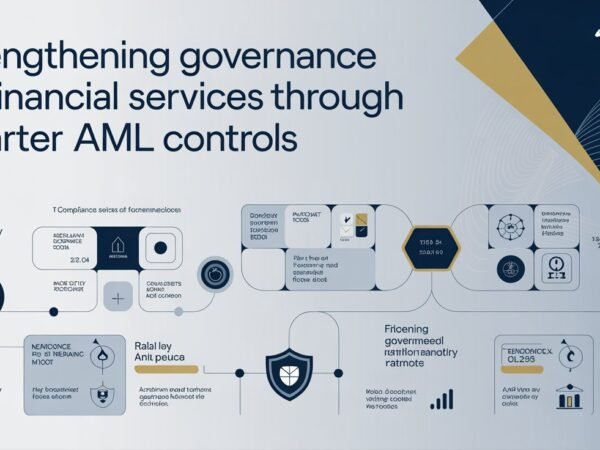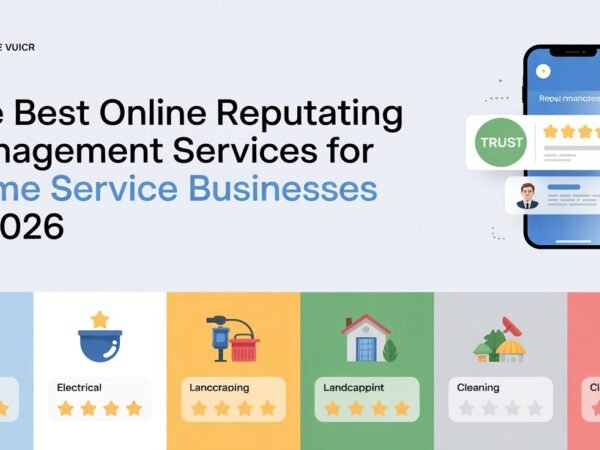The advent of generative AI has significantly transformed various business functions, and HR is no exception. As organizations face the growing complexity of hiring and managing talent, generative AI for HR operations presents promising solutions, streamlining processes, improving decision-making, and enhancing employee engagement. AI agents in HR have become powerful tools, particularly in talent acquisition, where they optimize recruitment workflows and enable HR teams to identify and attract the best candidates.
The Role of Generative AI in HR Operations
Generative AI in HR operations enables teams to automate repetitive tasks, analyze vast amounts of data, and improve employee interactions. By adopting AI-driven solutions, HR departments can reduce manual efforts, gain deeper insights, and create personalized employee experiences, contributing to organizational growth and improved workforce engagement.
Critical Benefits of Generative AI in HR Operations
- Streamlined Recruitment: Automates the initial hiring stages, from screening resumes to conducting preliminary interviews, allowing HR teams to focus on strategic initiatives.
- Data-Driven Decisions: Provides insights into workforce trends, enabling HR to make proactive adjustments and improve talent management strategies.
- Enhanced Employee Experience: Personalizes HR communications and engagement, offering tailored interactions based on individual employee needs.
- Increased Operational Efficiency: Reduces manual tasks, improving the productivity of HR teams and enabling faster response times.
Generative AI’s ability to drive operational efficiency makes it a valuable asset across the entire employee lifecycle—from recruitment to retention.
AI Agents in HR: Transforming the Landscape
AI agents in HR are digital assistants that leverage machine learning and natural language processing (NLP) to perform various HR tasks autonomously or in collaboration with HR teams. These AI-driven tools serve as extensions of HR personnel, handling multiple tasks from candidate screening to employee onboarding and performance assessments.
Types of AI Agents in HR
- Talent Acquisition Agents: These agents optimize recruitment workflows, automate candidate screening, and streamline interview scheduling.
- Employee Engagement Agents: Designed to enhance workplace interactions, they personalize communications, deliver surveys, and analyze employee feedback to improve engagement.
- Learning and Development Agents: Focus on customizing training and development paths based on employee skill sets, progress, and career goals.
- Employee Support Agents: Serve as a 24/7 resource, answering employee queries, managing HR requests, and providing guidance on HR policies.
With AI agents in HR, organizations can elevate their workforce management by automating routine processes, reducing response times, and offering personalized employee experiences.
AI Agents for Talent Acquisition: Enhancing Recruitment Processes
AI agents for talent acquisition are transforming how organizations attract, assess, and hire talent. By automating time-consuming tasks and providing insights into candidate fit, these agents improve recruitment efficiency and enable HR teams to make more informed hiring decisions.
Critical Functions of AI Agents in Talent Acquisition
- Automated Resume Screening: Analyzes resumes and identifies candidates who best match the job requirements based on skills, experience, and qualifications.
- Chatbot Interaction with Candidates: Engages candidates through chatbots, answering questions, providing information about job roles, and guiding them through the application process.
- Interview Scheduling and Reminders: Coordinates interview times and sends reminders to candidates and interviewers, reducing the administrative burden on HR teams.
- Skill Assessment and Testing: Conducts skill assessments to evaluate candidate capabilities and compatibility with job requirements.
Benefits of Using AI Agents for Talent Acquisition
- Improved Candidate Experience: AI agents ensure a smooth and positive candidate experience by engaging candidates promptly and providing clear guidance.
- Increased Hiring Efficiency: Automates initial screening and assessment, enabling recruiters to focus on high-priority candidates.
- Data-Driven Hiring Decisions: Offers insights into candidate qualifications, reducing the likelihood of bias and improving hiring outcomes.
- Enhanced Diversity and Inclusion: Reduces unconscious bias in screening, promoting a more diverse and inclusive workforce.
AI agents for talent acquisition create a streamlined and candidate-centric recruitment process, making it easier for HR teams to attract and retain top talent.
How Generative AI Empowers HR Operations with Predictive Analytics
Predictive analytics, powered by generative AI, is critical to HR operations. By analyzing historical data, generative AI can predict trends, such as employee turnover rates, recruitment needs, and skill gaps, allowing HR teams to address workforce challenges proactively.
Applications of Predictive Analytics in HR
- Employee Retention Predictions: Identifies employees at risk of leaving based on historical data, allowing HR to implement retention strategies proactively.
- Workforce Planning: Forecasts hiring needs, skill shortages, and workforce distribution to align with organizational goals better.
- Performance Prediction: Predicts employee performance based on critical indicators, enabling targeted development programs.
- Engagement and Satisfaction Monitoring: Analyzes engagement data to identify patterns indicating dissatisfaction or burnout, supporting early intervention.
By leveraging predictive analytics, HR departments can make proactive adjustments, create personalized career paths, and foster a more supportive work environment.
Applications of Generative AI for HR Operations
AI-driven tools are versatile, offering benefits across various HR functions. Here are some critical applications of generative AI in HR operations:
Recruitment Automation
Generative AI streamlines recruitment by automating tasks like resume screening, candidate outreach, and interview scheduling. AI-powered tools can assess candidate resumes for skill relevance, evaluate candidates’ social media profiles, and even conduct initial interview assessments. By reducing manual processes, generative AI shortens the recruitment cycle, enhances candidate quality, and frees HR teams to focus on strategic recruitment tasks.
Employee Onboarding
AI agents can guide new hires through onboarding, providing information about company policies, benefits, and job expectations. They can also answer common questions, schedule orientation sessions, and help new employees feel welcome and supported from day one.
Learning and Development
Generative AI customizes training programs based on employee roles, performance data, and skill levels. AI agents can recommend relevant courses, set personalized learning paths, and monitor progress, ensuring employees acquire skills essential for career growth.
Performance Management
AI tools can assist performance evaluations by analyzing employee achievements, skill development, and feedback data. By providing real-time insights, AI agents support managers in creating fair, transparent, and data-driven performance reviews, encouraging employee growth.
Employee Engagement and Feedback
Generative AI supports employee engagement by analyzing feedback surveys, exit interviews, and sentiment data. By identifying trends in employee satisfaction, AI can help HR teams address concerns, enhancing overall workplace morale and retention.
Overcoming Challenges in Implementing AI in HR
Despite the numerous benefits, implementing AI for HR operations also presents challenges that organizations must address to ensure successful adoption.
Data Privacy and Security Concerns
Handling sensitive employee information with AI tools necessitates robust data security and compliance with regulations like GDPR. Companies must prioritize secure data storage and adhere to privacy regulations to protect employee information.
Integration with Legacy Systems
Integrating AI solutions with existing HR systems can be complex, particularly in large organizations with legacy infrastructure. A phased approach and collaboration with IT can ensure smooth integration.
Employee and Management Buy-In
AI in HR may encounter resistance due to job displacement and data usage concerns. Organizations should provide training and transparency around AI tools to foster trust and encourage adoption.
Continuous Monitoring and Updates
Generative AI models require regular monitoring and updates to remain accurate and relevant. HR departments must prioritize continuous improvement and adjust AI parameters as business needs evolve.
Future Trends in Generative AI for HR Operations
The potential for AI in HR continues to grow, with new trends emerging that will further shape the future of HR operations.
- Hyper-Personalized Employee Experiences: AI will enable HR to create personalized experiences by understanding individual employee preferences, development needs, and engagement triggers. This will help foster a more tailored and responsive work environment.
- Predictive Talent Acquisition: AI-driven talent acquisition tools will predict hiring needs, candidate fit, and skill requirements, enabling companies to proactively acquire talent with a higher likelihood of success and retention.
- Automated Career Pathing and Succession Planning: AI will provide insights into employee career progression opportunities, identifying skills required for advancement and suggesting development paths. This can improve retention by offering employees a clear growth trajectory.
- AI-Powered Voice Assistants for HR: Voice-activated AI assistants may soon handle routine HR inquiries and tasks, providing employees with real-time responses to policy questions, benefits information, and other HR services.
- Continuous Sentiment Analysis for Employee Satisfaction: With sentiment analysis, AI can continuously gauge employee sentiment through various channels, such as emails, chat systems, and feedback surveys. This data will enable HR to respond swiftly to changes in employee morale.
Conclusion
Generative AI for HR operations is a powerful tool for transforming talent acquisition and employee engagement. With AI agents for HR, organizations can streamline recruitment, enhance workforce management, and make data-driven decisions. In particular, AI agents for talent acquisition are revolutionizing recruitment by automating key processes, improving candidate experience, and reducing bias.
While challenges such as data privacy and integration persist, the benefits of generative AI in HR operations make it a valuable investment for organizations committed to building an adaptive, efficient, and engaged workforce. As AI technology advances, HR departments will continue to benefit from innovative solutions that enhance efficiency and empower HR teams to deliver a better employee experience.
Do Read: Best Font Choices for Plaque Awards













